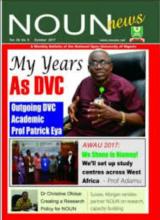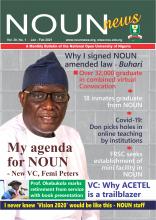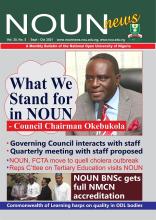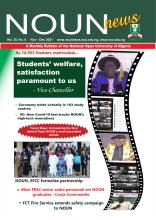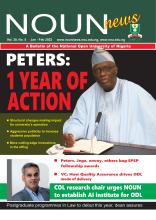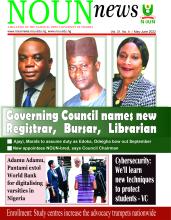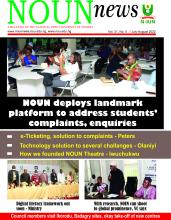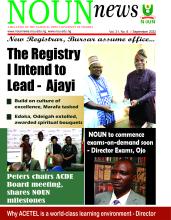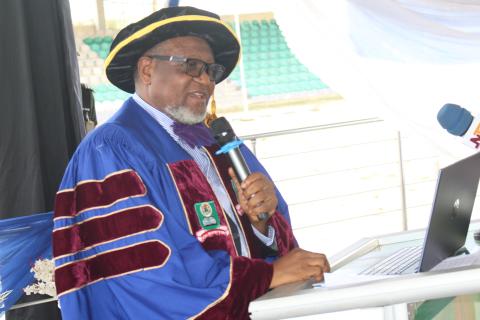
A professor of Parasitology, Faculty of Sciences, National Open University of Nigeria (NOUN), Chiedu Felix Mafiana, has said that the dreaded tropical diseases can well be controlled or eliminated through preventive chemotherapy delivered in an integrated manner through mass drug administration.
This, he said, has become imperative in the light of the global fight against Neglected Tropical Diseases (NTD).
The expert stated this on Thursday, August 17 2023 at the NOUN headquarters in Abuja, while presenting the university’s 23rd Inaugural Lecture.
Mafiana noted that the tropical parasitic diseases constitute the greatest threat to the socio-economic status of humans of the many poverty-related tropical diseases that exist.
The World Health Organisation, he said, has stated that ‘’parasitic diseases affect more than one billion of the world’s poorest and cost developing economies billions of dollars per annum."
In the lecture titled: ‘’Audacity of Parasites and the Imprudence of Man," he said ‘’Many tropical diseases collectively affect health of millions worldwide every year.
"These diseases can cause severe disfigurement and disabilities, including blindness, development disabilities and malnutrition, impairment of intellectual development in children, reduced school enrolment and hindrance to economic productivity by limiting the ability of infected individuals to work."
Mafia, who is the Dean, School of Postgraduate Studies of the university, added that these tropical diseases are caused by a variety of pathogens such as viruses, bacteria, protozoa and parasitic worms and can be spread by unsanitary conditions and contaminated water or food sources in tropical and subtropical regions.
‘’Many cities in Nigeria with the attendant population pressures and human indiscretion and dirty habits of throwing garbage into drains, tyres, provide the impetus for continuous breeding of mosquitoes of different species contributing to disease transmission," he said.
The don said school health programmes, including deworming and improved sanitary and hygienic conditions should be key in addressing the burden of parasitic infection and poor sanitary conditions.
‘’Lack of latrines as an integral part of houses and in motor parks and markets are the main reasons for indiscriminate defaecation around streams, bushes, domestic and peridomestic areas on and beneath rock outcrop and refuse dumps," he said.
He further explained that human activities have not helped matters due to throwing waste and dirty materials into the drains and gutters, which inadvertently encourages the breeding of mosquitoes and insects.
Among recommendations made, Mafiana said integrated control should be enhanced and reinforced through the delivery of impact drugs, as the drugs can be quickly deployed by community-based distributors with rapid reductions in disabilities, improvement in well-being and, in some cases, interruption of disease transmission.
The professor of parasitology advised the need to educate the at-risk population on all environmental factors that may reduce their risk of mosquito borne disease, or sleeping under a treated bed net, which will reduce the risk of disease carried by flies that circulate at night.
He recommended that there should be a continuous improvement in research funding at the local level.
On his part, the Vice-Chancellor and Chairman of the occasion, Prof. Olufemi Peters, praised the brilliant delivery of the lecture.
He commended the academic prowess of lecturer, who has contributed significantly to the development of the university.
The Deputy Vice-Chancellor, Academics, Prof. Uduma Oji Uduma, in his vote of thanks, congratulated the lecturer on the auspicious occasion and for delivering the lecture exceptionally well.
The DVC thanked the NOUN community for their support and coming out en mass to attend the lecture.
The occasion was graced by the Ag. Executive Secretary, National Universities Commission (NUC), Chris Mayaiki, Deputy Executive Secretary of the commission, Dr. Noel Saliu, immediate-past Chairman, NOUN Governing Council, Emeritus Prof. Peter Okebukola, the lecturer’s family and friends, colleagues and well-wishers.
- Log in to post comments
- 70 views

